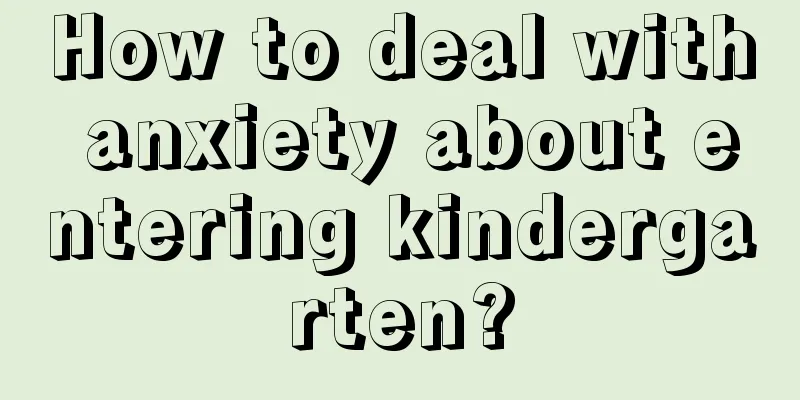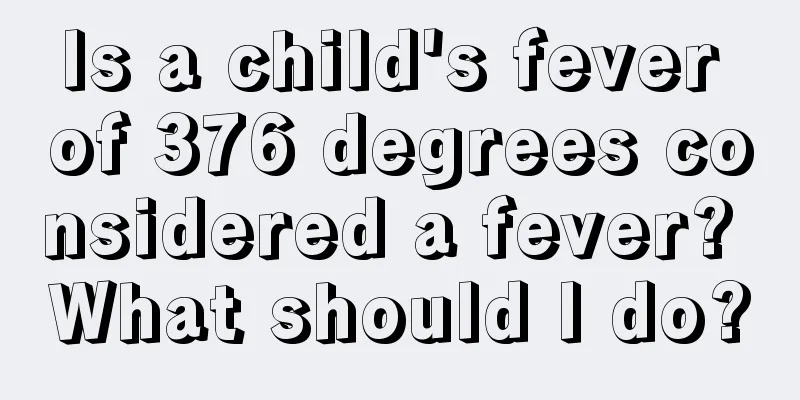How to deal with anxiety about entering kindergarten?

|
When parents first take their children to kindergarten, the children are not willing to leave their parents because they are not used to the unfamiliar environment. They will cry when their parents leave. After they finally calm down, the children will also become anxious in kindergarten. This problem requires kindergarten teachers and parents to deal with it together. First of all, you must consider the child’s situation, especially the following coping tips must be remembered. How to deal with anxiety about entering kindergarten? First, comfort the child. Let the child calm down first and don't get excited about being hospitalized. If the child is excited, he will not listen to reason. The next thing is to explain clearly to the child why he should go to kindergarten. Some children may think that they are left in kindergarten because their parents don’t like them anymore and want to abandon them. It is necessary to guide the child correctly and let him know the reasons why his parents want him to go to kindergarten. The next thing is to cultivate children's interest in kindergarten, tell them what fun things there are in kindergarten, and give them some rewards appropriately. For example, if the children perform well in kindergarten for a week, you can take them out to play, and you must keep your promise. When the child is first admitted to the hospital, parents can accompany him/her appropriately. They should not abandon the child there all at once. Children will be particularly frightened when thrown into an unfamiliar environment, and will resist this place afterwards. So take it slow, don't be impatient, and encourage the child instead of complaining. When a 3-year-old child first enters kindergarten and is separated from his or her attachment objects (mainly relatives), he or she will immediately feel anxious, uneasy, sad, and painful, and will show signs of refusing to separate, such as acting coquettishly, crying, and making noise. This is the child's kindergarten anxiety, which is actually a kind of separation anxiety, which is a nervous and uneasy emotion. Usually children who are 3 years old will enter kindergarten to study and live, and 3.5 years old is the peak period for children to develop attachment. When young children first enter the new kindergarten, the unfamiliar environment, unfamiliar teachers and unfamiliar friends make them feel insecure, strengthen their attachment to their loved ones, and make them unwilling to leave their loved ones. The departure of their loved ones makes young children feel insecure and lack an object to attach themselves to, which leads to anxiety about going to kindergarten. Every child will experience separation anxiety to a greater or lesser extent when entering kindergarten, but the degree varies. Generally speaking, young children's anxiety about going to kindergarten mainly includes clinging to their relatives, asking teachers to hold them, crying, making noise, rolling around, throwing things, being sleepy, being dazed, wetting their pants, wetting the bed, refusing to eat, refusing to drink water, biting their fingers, cutting their fingers, and banging their heads against the wall. They often use these threats to force their parents not to leave them. The first separation anxiety in life occurs when a child first enters kindergarten. |
<<: How to educate a two-year-old and seven-month-old baby
>>: Is it good for babies to eat betel nut hammers?
Recommend
What are the emergency care measures for neonatal asphyxia?
There are two main ways for newborns to be born, ...
What to do if a child has enlarged nasal conchae
There is probably only one child in every family ...
What should I do if my baby's forehead is red from a fall?
If your baby's forehead is red from a fall, y...
Do all babies need cod liver oil supplements?
Children's health is an issue that every pare...
How to treat baby heat bumps
The physical health of infants needs attention, b...
What is the standard height and weight for a two-month-old baby?
According to a recent survey, many newborns now h...
How much does a baby gain during the confinement period?
A baby's weight is a very important indicator...
What are the causes of heart murmurs in newborn babies?
I don’t know what the cause is, but in recent yea...
If the baby is not awake, does it mean he is not hungry?
For new parents, most parents judge the baby'...
What should you pay attention to when your child is changing teeth at the age of six?
As children grow and develop, their teeth will ge...
The child still has a fever after the IV drip
Because children have poor resistance, they often...
What to do if your child has a picky eater
Many parents are helpless in the face of their ch...
When do baby dimples appear?
Many people have dimples when they smile, but som...
What to do if a one-month-old baby has jaundice
We all know that jaundice is a phenomenon with a ...
What to do if your newborn can't defecate
How fragile a newborn baby is, that tiny little l...









